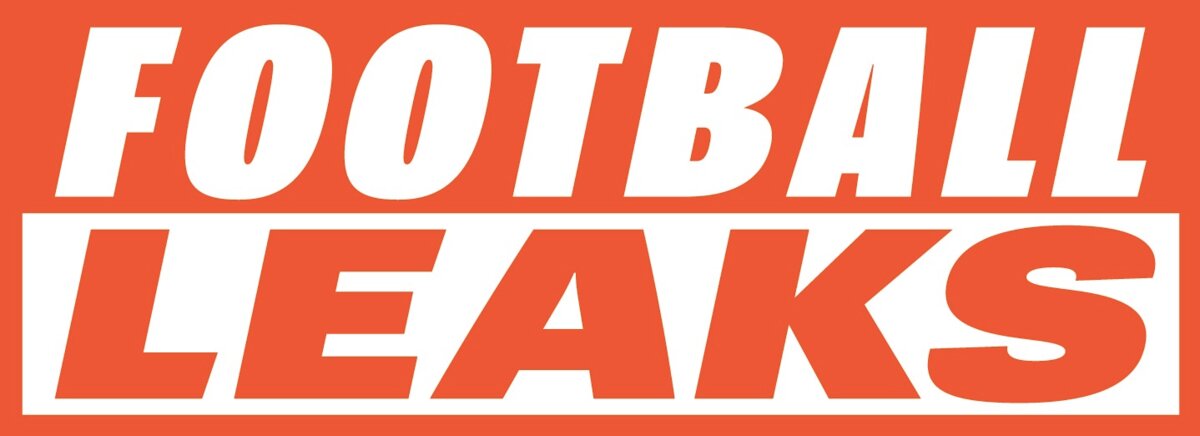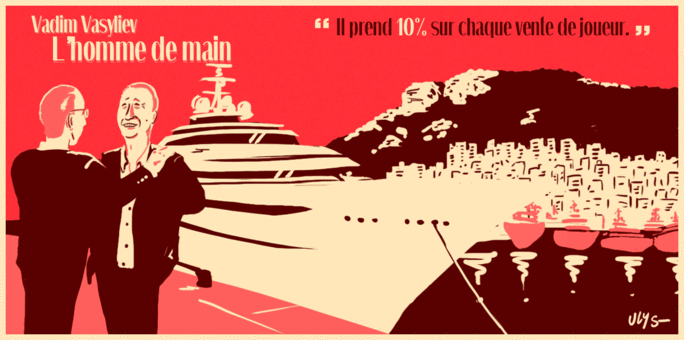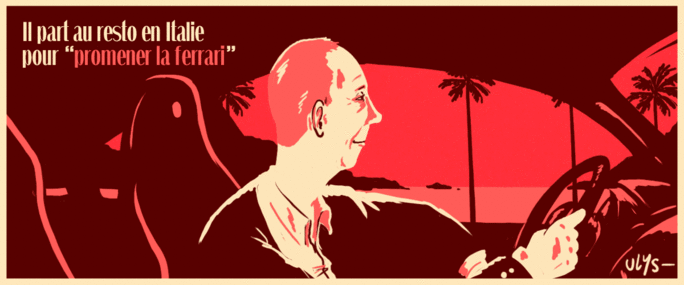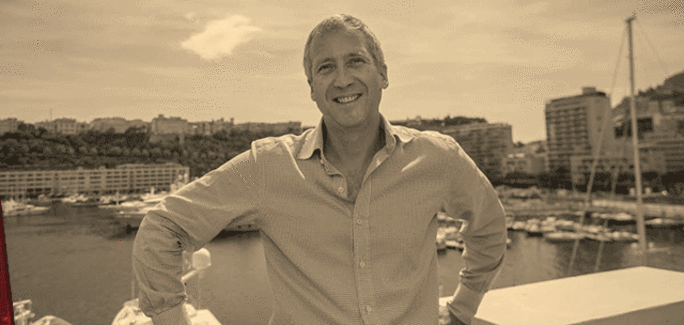It is news which should cheer up his fellow club presidents and maybe even give them some ideas: the vice-president and CEO of AS Monaco, Vadim Vasilyev, gets a commission on players that the French Ligue 1 club sells. That is revealed in documents from Football Leaks, obtained by German weekly Der Spiegel and analysed by Mediapart (see 'Boite Noîre' bottom of page) and partners in the European Investigative Collaborations (EIC).

Enlargement : Illustration 1

A close ally of club owner Dmitry Rybolovlev, Vasilyev receives 10% on the capital gains or profits made on the sale of each player. For the 2017/20178 season this means he is entitled to a total of 11.9 million euros in commission; 4 million for the sale of Bernardo Silva to Manchester City, 3.4 million for Tiémoué Bakayoko, et 3.9 million for Benjamin Mendy.
He had previously received 5.3 million euros for the 2015/2016 season and 5.4 million for the 2016/2017 season, according to a club accounts document dating from July 2017. But his 2016/2017 bonus was cut by 636,000 euros because of a tax reassessment carried out by the Spanish authorities following several transfers on which Monaco had thought they could avoid tax.
However, Vadim Vasilyev will soon hit the jackpot. In the summer of 2017 AS Monaco (ASM) sold four big name players – Bernardo Silva, Tiémoué Bakayoko and one of the game's emerging global stars Kylian Mbappé – for a gain of 286 million euros. That means a commission for the club's vice-president of 28.6 million euros which will be paid in several payments as the clubs who bought the players pay in instalments. The Russian should receive 9 million euros of that total this year in relation to the first payment made in July by France's leading club PSG for the purchase of Mbappé.
According to the specialist site Transfermarkt, the total gain made by AS Monaco from the sale of its players over the last five seasons amounts to 419 million euros - meaning 41 million euros for 'Mr 10%'.

Enlargement : Illustration 2

These ample fees, paid in instalments, are not under-the-table payments; the 10% commission features in black and white in the first supplementary clause in the vice-president's work contract dating from August 2013. “The present clause also adds to the employee's fixed salary profit-sharing of 10% (ten percent) on all the capital gains made by the Company on the sale of players,” the contract states. This commission is paid under the heading of 'exceptional bonus' within fifteen days after the payments received by the club in relation to those transfers. Any resulting losses on the sale of a player, meanwhile, are deducted from the bonuses.
AS Monaco is very aware of the special nature of these measures. When sending the contract documents to Yury Bogdanov, a loyal official at Rybolovlev's family office Rigmora which oversees AS Monaco, the club's financial director Alexander Sarrazin carefully noted: “As you already know, these agreements are highly confidential.” However, the lawyer Jean-Pierre Gastaud, a director at ASM and who is close to the ruling authorities in the principality, recalls: “We voted something through on that.”
Vadim Vasilyev himself confirms: “The executives' contracts are contracts under private law and are not in theory subject either to a charter of the sporting authorities or the approval of the club's board of directors … But I can confirm to you that the club's board of directors was duly informed of these operations on a regular basis.” The club itself says: “This contract needs no validation by the sporting authorities....It includes a remuneration that varies according to the club's results (financial and sporting) as is customary for all heads of a major business.” (For Vadim Vasilyev's full response see the end of this article.)
However, does this kind of bonus conform to the rules? Tatiana Vassine, a specialist sports lawyer, says football's governing body FIFA could look into whether it conforms with the ban on 'third party ownership' or TPO, which came into effect in 2015. Part of article 18 of FIFA's regulations on the status and transfer of players states: “No club or player shall enter into an agreement with a third party whereby a third party is being entitled to participate, either in full or in part, in compensation payable in relation to the future transfer of a player from one club to another, or is being assigned any rights in relation to a future transfer or transfer compensation.”
“The question then is to know if the director of a club is considered to be a third party or not,” says Tatiana Vassine. FIFA has not given Mediapart a precise answer on this. It is all therefore a question of interpretation, says the lawyer. “FIFA could consider that a person who is part of a club is not a third party,” she says. Equally, it could decided the opposite. “If the club is smart it receives the money from the transfer and pays a part to its director as an exceptional bonus with no further explanation,” says the lawyer, which would not be against the current rules. That is exactly what AS Monaco did.
The governing body of France's football leagues, the Ligue de Football Professionnel (LFP), has been somewhat wrong-footed by this bonus clause, which it appears not to have known about. On the one hand the LFP reminded Mediapart that third parties “cannot, without contravening the applicable FIFA regulations, receive any profit-sharing on the future sale of the player”. The organisation also points out that sanctions exist. “As an example, Atletico Madrid were punished this this summer with a fine of around 45,000 euros,” it says.
But the LFP also notes: “You must not link the ban on a third party receiving a share of the profits on a given transfer and the possibility for a director or a recruiter to have a profit-sharing [scheme] over the economic results for a club arising from the sale or resale of a player whom it has trained or recruited.” The organisation cites examples of training centres that receive a bonus “according to the number of players being trained who sign as professionals in a club”. The LFP says that even if this is something they are not aware of happening among members, they could imagine that “some positions in a club, among them that of director, might have a financial stake in the overall total amount involved in transfers during, for example, a particular transfers deadline period” which would not be illegal.
A Maltese passport for 690,000 euros
Vadim Vasilyev, who has been in charge at AS Monaco since 2013, does not just benefit from 10% on the profits from transfer deals For his first three seasons in charge he also received a share of the profits from the club's commercial revenue, namely “commercial and marketing products, ticket sales, sponsorship, partnerships and the capital gains from property sales”. Up to a ceiling of 50 million euros Vasilyev received 1% of revenue and above that figure 2%. For the 2014/2015 season his bonus came to 1.8 million euros. This commission scheme was abandoned in July 2016 and instead the Russian negotiated an increase in his basic salary from 750,000 euros to 1.25 million.
Club director Jean-Pierre Gastaud defends the way the club has conducted itself. “Vadim is a really competent guy. If Rybolovlev hadn't been there, the club wouldn't be where we are,” he said. In other words, while the club is having a tough season at the moment, without its Russian backer it would not now be in the Champions League and would not have become the breeding ground for young talent for which it has earned a reputation. “You must set these amounts against the enormous figures in football: look at the salaries of the players and trainers,” adds Gastaud.
Vadim Vasilyev, who has worked for Ryblovlev for many years, has steered the club expertly since taking over in 2013. Many colleagues and chairmen of rival clubs are happy to sing the praises of the efficiency, availability and sense of humour of this jovial and multi-lingual man in his 50s.
But the Russian can also put his foot down if needed when faced with the manyand varied demands of running a top-flight football club. In December 2015 his deputy Nicolas Holveck explained: “Vadim wants us to produce a memo banning access to La Turbie [editor's note, where the club's training ground is based] (and to the stadium too) to luxury vehicles (Ferraris, Bentleys, Porsches etc). If the players don't respect this memo they will be refused access to the [training] centre.” Holveck explains: “Vadim really wants them to come in 'normal' cars or taxis. He no longer wants to see these cars at La Turbie or the stadium.”
Holveck looked at ways of putting this into practice. He thought they could make a list of “authorised vehicles” rather than of those that were banned because, he explained, “in terms of individual freedoms the employer cannot have the authority to ban the acquisition or the driving of a type of vehicle”.
The memo itself states: “Only professional players turning up with a courtesy car of any category or makes other than S series Audis, Bentleys, M series BMWs, Ferraris, Porsches, Hummers, Jaguars, Maseratis and S series Mercedes will be authorised to enter.” The club's deputy technical director Andrea Butti asked: “And Range Rovers? And what is the difference between a basic Porsche and a S-class Mercedes or a S-series Audi?” Butti was worried because it was him who was going to have to police the entrance. “It's to know how to manage the system because on the 28 h, I'll be there...”
Vasilyev himself knows quite a lot about luxury cars. In January 2016 he was looking to reserve a restaurant somewhere in Italy, at a maximum of an hour and a half's drive from Monaco, to give his Ferrari a “spin”. The Ferrari in question was a blue California T that had cost him 259,000 euros in 2015.
The Russian is also the proud owner in Moscow of a magnificent 1972 GAZ Chaika car which was apparently used by Fidel Castro during his official there in 1972. In April 2017 Vasilyev looked to see whether a collector might be interested in this prestige car. An intermediary asked him: “Do we have proof that Fidel Castro used it during his official visit? One of the collectors in my network is very interested in 'dictators' cars'.” There is also his large yacht Azimuth which was commissioned in 2017 for 5.1 million euros with delivery due for April 2018, complete with five cabins and two 1900hp V12 engines.

Enlargement : Illustration 3

Vadim Vasilyev clearly thinks through all the issues when he is making a large purchase. So for example in 2017 when he was buying a villa for 14.5 million euros at Palma de Mallorca he hesitated between using Malta or Luxembourg as the base for the holding company that would own it and future properties. “My idea is to use this company to buy other properties (Monaco?),” he wrote. In the end he opted for Malta. “I am informing you that I have decided to buy the Spanish property directly through my Maltese company”, he wrote referring to Staguni Ltd.
In the same year, 2017, Vadim Vasilyev took Maltese nationality. This was supposed to stay secret but Le Monde revealed it during an investigation initiated by the association Forbidden Stories, which was set up in the wake of the murder of the Maltese journalist Daphne Caruana Galizia.
“We're very proud to be citizens of Malta, of the European Union, whose values we fully share,” the AS Monaco has since stated to anyone willing to listen. When questioned by Mediapart Vasilyev insisted that he wanted to “thank the Republic of Malta for having given me the opportunity to become a citizen of the European Union whose values I share”.
Was Malta a heartfelt choice? Back in November 2013 he studied the possibility of taking a stake in the Cypriot club Apoel FC based in Nicosia – it eventually proved too tricky especially over the prospect of both ASM and Apoel qualifying for the same European competition - then in 2013 he sought information on how to get a Cypriot passport. Was he at the time considering taking part in a programme in operation at the time under which naturalisation was open to those who invested in businesses, property or who deposited sums in Cypriot banks? “I never considered joining this programme,” says Vadim Vasilyev.
Enormous cash withdrawals
To become Maltese Vadim Vasilyev had to make a significant investment because, like Cyprus, Malta 'sells' its passports to investors. So in October 2016 he transferred 690,000 euros into the bank account of the government agency 'Identity Malta', the obligatory entry ticket. He also put 155,000 euros into his Bank of Valletta account in order to “invest 150,000 euros in ...Malta Government Bonds”, looked for an apartment to rent, renewed health insurance policies for him, his wife and his daughter and had to show “proof of residence” for the past year, using old airline tickets.
The company that organised the procedure, Henley & Partners, explained the costs: the 690,000 euros in “contributions to the government”, which he would not see again, the 150,000 in Treasury bonds – of which he remains the owner – and five years rental of an apartment.

Enlargement : Illustration 4

The subsequent gains are worth these sacrifices. Malta is a paradise for the super-rich who once they get their passport can benefit from amazing tax terms (5% tax rates) and have access to the European Union, of which the island has been a member since 2004, its market and its banking system. The EU thinks it has laid down rules which stop “passports of convenience” being handed out. But in reality it is a lax system.
Henley & Partners arranged a swearing in ceremony for Vadim Vasilyev and his wife Olga Vasilyeva on January 12th, 2017. Two days before the Russian had met the Maltese prime minister Joseph Muscat and he spent three consecutive days on the island.
Vasilyev had previously invited the Maltese prime minister to Monaco's Champions League quarter final against Manchester City scheduled for March 15th, 2017. The Russian said he would on that occasion have “the pleasure of introducing him to Prince Albert”. Vadim Vasilyev told Mediapart: “Prime minister Joseph Muscat … did not accept my invitation. I was already then a Maltese citizen and as Mr Muscat is know for his passion for football it seemed natural to me and did not mix up different issues.”
In December 2015 the Russian had to introduce himself in a personal letter in which he committed himself to spending ten days in Malta in his first year to “contribute to the development of football in Malta” and also to introduce local clubs to potential investors. He envisaged local developments for his activities outside football, such as restaurants. He also let slip that he had made a “significant financial donation” to the Dar Sagra Familja children's home that he visited with his wife.
The boss of AS Monaco also suggested coming with Claude Makelele, the former Chelsea and France star then employed by Monaco, to meet young and professional players on the island. But this move obliged Vasilyev to reveal where his wealth came from. He did this in an email in November 2015 which detailed his income from his previous jobs as vice-president of Transammonia AG a “commercial Swiss company”, which is today called Trammo and specialises in chemical fertilisers, as managing director of Uralkali, the giant potash firm where his boss, Dmitri Rybolovlev made his fortune, and from his investments in restaurants.
In terms of business, in 2013 Vasilyev also had a plan for a 2.9 million dollar loan by a company called Eagle Rock based on Tortola in the British Virgin Islands. The plan was to send the money via a Swiss account to a Panamanian company, Tonalson Group, which had been created two years before by an intermediary for dummy companies. We do now know how or if this plan proceeded. The football club boss simply confirmed that he had “legally borrowed 2.9 million dollars in 2013 on market terms”. Eagle Rock sometimes acts as an intermediary for the purchase of players, like when in 2014 Rybolovlev's investment fund, Browsefish, bought 66.5% of the Brazilian player Danilo, who belonged to Gestifute, the company run by Portuguese super agent Jorge Mendes.
Vasilyev ives in Monaco and this costs money. His three rooms there cost 15,000 euros a month. Nor is life on the 'Rock' always straightforward; for example in August 2014 the club boss had to take a helicopter to have breakfast with the mayor of Saint Tropez, situated down the Mediterranean coast, as in the summer the roads there are packed.
The vice-president of AS Monaco also gets through cash – a lot of it – which he takes out of the club and which is deducted from his salary. His love of cash is great even for Monaco where, unlike in neighbouring countries, one can still pay up to 30,000 euros in cash for items – the question of whether the principality should conform to international standards on this has recently been debated in Monaco's Parliament. In June 2014, for example, Vasilyev needed 10,000 euros in 50 and 100-euro notes. An employee at the club told him: “Ok I'm getting the cash out tomorrow morning at the Compagnie Monégasque de Banque, however they tell me that they will have to give us 200 to 500 notes because they don't have 10,000 in 50 to 100 [notes] in their cash registers.” In reply Vasilyev grumbled: “It's hard to use notes of 500, the lowest possible number in 500 please and some in 100 please.”
On occasions the club vice-president took out 50,000 euros in cash, as in September 2017. “Personal,” was the reason given for needing the cash. His requests for cash have sometimes come very close together; 20,000 euros on May 3rd, 2017, then 10,000 euros on June 10th, 10,000 euros on June 29th, 10,000 euros on July 11th, 30,000 euros on July 26th, and 10,000 euros on July 31st. That added up to 100,000 in three months. What did he need the money for? “It simply concerns withdrawals of cash from my salary for personal expenditure,” says Vadim Vasilyev. “Purely and simply.”
---------------------------------------
Mediapart sent a number of questions to Vadim Vasilyev about the points raised in this article. These were his replies:
- Concerning the level of my pay, you should be aware that executives' contracts are contracts under private law and are not in theory subject either to a charter of the sporting authorities or the approval of the club's board of directors. It arises from a simple negotiation between the employer and employee. But I can confirm to you that the club's board of directors was duly informed of these operations on a regular basis.”
- To reply to your question on the Cypriot naturalisation programme, I never considered joining this programme. On the other hand I confirm paying 690,000 euros in “governmental contributions” in order to acquire Maltese nationality (within the legal procedure in this country). I can only thank the Republic of Malta for having given me the opportunity to become a citizen of the European Union whose values I share.
- I did indeed invite prime minister Joseph Muscat to the Champions League match but he did not accept my invitation. I was already then a Maltese citizen and as Mr Muscat is known for his passion for football it seemed natural to me and did not mix up different issues as you imply.
- Incidentally, as a Maltese citizen I favoured the use of my Maltese company in my investments.
- I also confirm to you that I legally borrowed 2.9 million dollars in 2013 on market terms. It involves a private transaction.
- In relation to my withdrawals of money, it concerns withdrawals from my salary for personal expenditure, purely and simply.
.------------------------------------------------------------------------
If you have information of public interest you would like to pass on to Mediapart for investigation you can contact us at this email address: enquete@mediapart.fr. If you wish to send us documents for our scrutiny via our highly secure platform please go to https://www.frenchleaks.fr/ which is presented in both English and French.
------------------------------------------------------------------------
- The French version of this article can be found here.
English version by Michael Streeter


